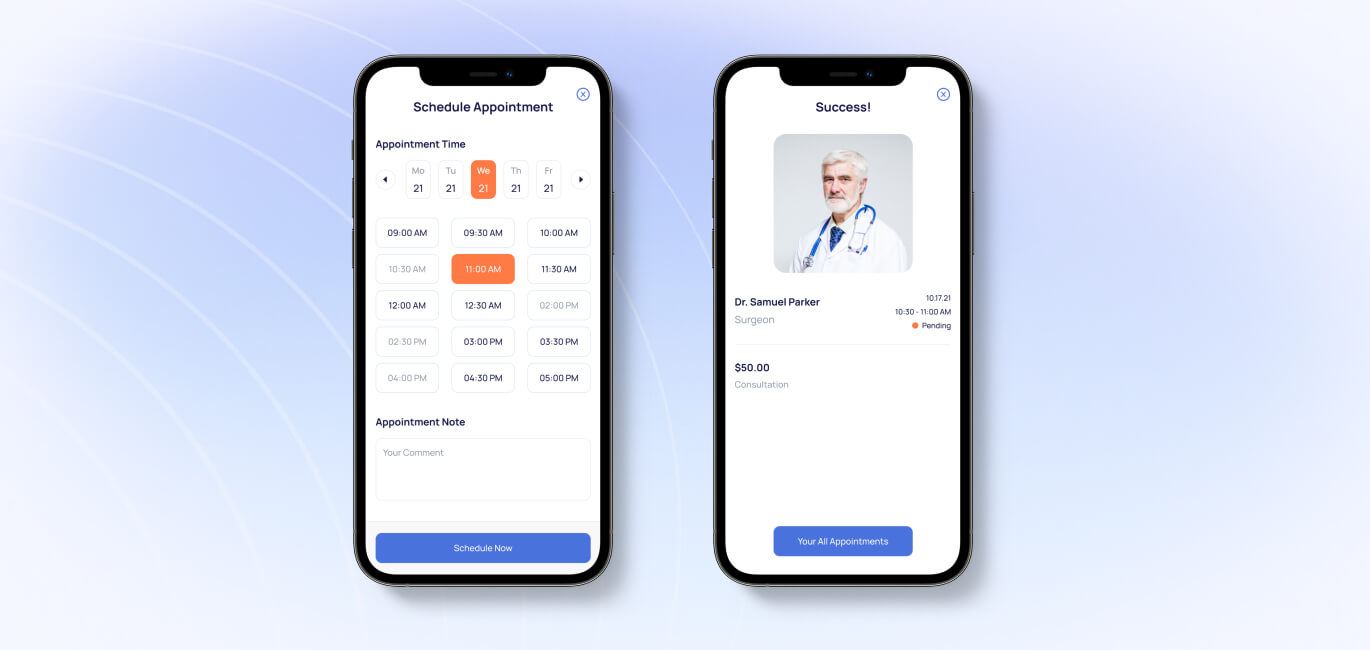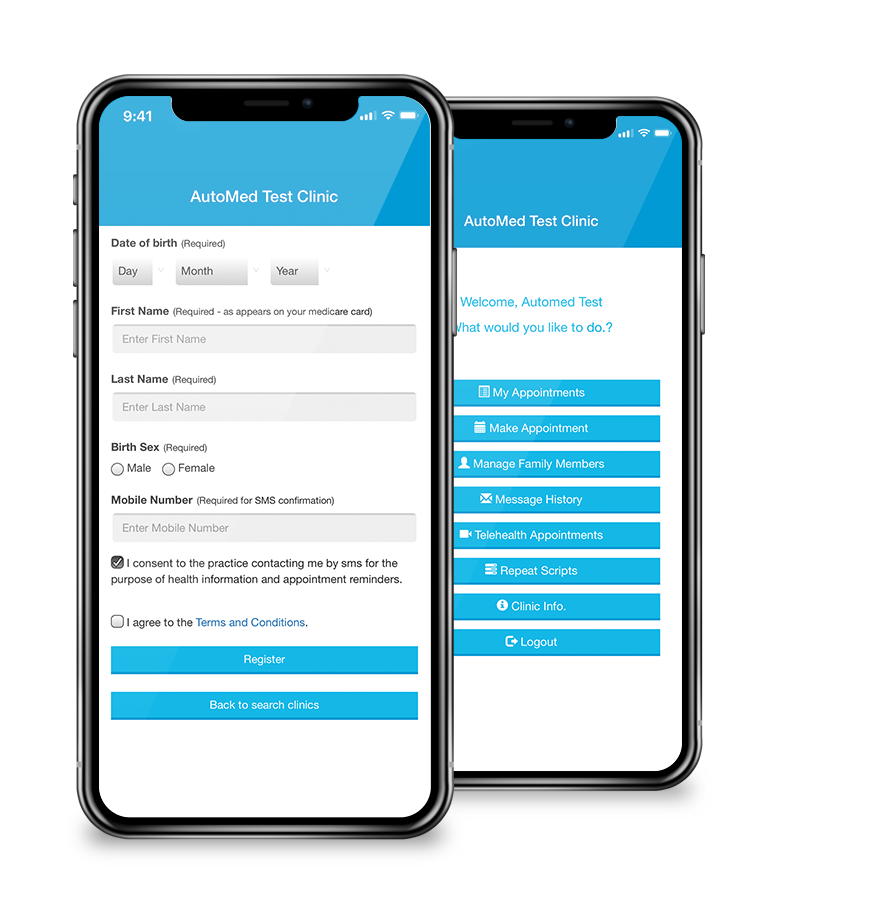The Impact of a Mobile App for Clinics on Workflow Effectiveness and Patient Complete Satisfaction
The Impact of a Mobile App for Clinics on Workflow Effectiveness and Patient Complete Satisfaction
Blog Article
The Future of Healthcare: Why Clinics Required a Mobile App Today
As the healthcare landscape continues to develop, centers encounter placing pressure to adjust to client assumptions for higher benefit and ease of access. The combination of mobile applications can offer as an essential method for boosting person involvement and enhancing procedures.
Changing Individual Assumptions
As the landscape of health care advances, client expectations are undergoing a substantial makeover. Today's clients are progressively looking for ease, ease of access, and customized treatment.
In addition, individuals are ending up being more educated and empowered, usually researching treatments and problems on-line before consultations. This heightened recognition is combined with a need for openness in health care processes, consisting of expense estimates and therapy choices. Consequently, companies are compelled to adjust by adopting electronic devices that enhance the person experience.
The assumption for timely and efficient communication has never ever been higher, with many patients taking into consideration responsiveness a crucial part of top quality treatment. mobile app for clinics. In this advancing landscape, medical care organizations must recognize these altering expectations and leverage mobile applications to cultivate a much more patient-centric approach, ensuring that they not just meet but exceed the criteria set by today's enlightened consumers
Enhancing Individual Engagement

Mobile applications promote communication between patients and doctor, allowing real-time appointment scheduling, suggestions for drug adherence, and direct messaging functions. These performances not only boost convenience however additionally construct a sense of liability among patients. Additionally, mobile applications can use instructional content tailored to private demands, assisting patients better recognize their problems and treatment choices.
The integration of gamification elements within healthcare apps can additionally motivate clients to take part in healthy behaviors, enhancing positive lifestyle adjustments. By tracking development and satisfying achievements, individuals are more probable to remain committed to their wellness objectives. Inevitably, enhancing person interaction with mobile applications brings about improved wellness results, higher client contentment, and a more collective healthcare experience. Clinics that prioritize this element will likely see a considerable effect on the quality of treatment supplied.
Enhancing Facility Workflow
Simplifying facility operations is vital for improving workflow effectiveness and optimizing patient care. The application of mobile applications can dramatically decrease administrative concerns, enabling doctor to focus more on individual communications. By automating appointment scheduling, you can look here client check-ins, and billing processes, facilities can decrease wait times and improve general functional efficiency.
Mobile apps additionally facilitate real-time access to person documents, enabling medical care professionals to make informed decisions rapidly. This immediacy not only enhances the quality of care however additionally reduces the possibility of mistakes linked with lost or obsoleted details. In addition, leveraging mobile innovation supports a much more well organized technique to taking care of person follow-ups and treatment plans, making sure that no essential actions are neglected.
This allows for prompt replenishment and assists prevent interruptions in individual care due to equip scarcities. By integrating these performances into their day-to-day procedures, centers can produce a more natural and effective environment, ultimately leading to enhanced patient end results and satisfaction.
Improving Interaction Channels
Efficient interaction is frequently cited as a cornerstone of high quality health care delivery. In today's busy clinical setting, mobile applications can dramatically boost interaction networks in between clinics, patients, and healthcare companies. By integrating mobile applications into their operations, facilities can promote real-time interactions, making sure that people you can find out more obtain timely info concerning their appointments, examination results, and treatment strategies.
Mobile apps likewise encourage clients to interact directly with their medical care groups with secure messaging features. This straight line of interaction fosters a sense of engagement and enables for prompt clarification of concerns, which can result in better adherence to treatment methods. Press notices can advise clients of upcoming appointments or medicine routines, minimizing no-show rates and boosting total wellness outcomes.

Staying Competitive in Medical Care
In a swiftly advancing health care landscape, organizations have to prioritize technology and versatility to preserve an one-upmanship. The combination of mobile applications into healthcare solutions is no much longer optional; it is important for clinics aiming to enhance individual interaction, streamline procedures, and enhance overall service delivery.
As people increasingly count on electronic systems for health and wellness monitoring, centers that fall short to take on mobile modern technology danger falling back. A properly designed mobile application can provide features such as appointment organizing, telemedicine more helpful hints appointments, and access to medical documents, providing people with benefit and fostering loyalty.

Rivals are also spending in mobile options, so staying ahead needs continuous renovation and remaining notified concerning technical innovations. Centers should not only apply mobile applications but additionally take part in normal updates and refinements. Eventually, the successful integration of mobile innovation will certainly distinguish forward-thinking healthcare organizations and established the standard for patient-centric treatment in a digital globe.
Conclusion
In verdict, the combination of mobile applications in clinics is important to attend to the progressing landscape of person assumptions. Ultimately, the strategic application of mobile applications stands for an essential step toward supplying tailored and obtainable healthcare, consequently satisfying the demands of today's empowered people.
Ultimately, enhancing person involvement via mobile applications leads to improved wellness outcomes, greater patient contentment, and a much more collaborative medical care experience.Mobile applications additionally facilitate real-time access to patient documents, making it possible for healthcare specialists to make informed choices swiftly. In today's hectic clinical environment, mobile applications can dramatically improve communication networks between clinics, individuals, and health care carriers.Mobile apps likewise equip individuals to interact directly with their healthcare teams with secure messaging attributes. Inevitably, the calculated application of mobile apps stands for a crucial step toward providing customized and accessible healthcare, therefore satisfying the demands of today's equipped people.
Report this page